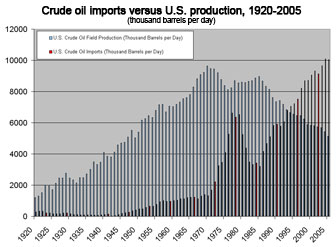The Obama administration will direct the Environmental Protection Agency (EPA) and the Department of Transportation to raise fuel economy standards of automobiles to 35 miles per gallon by 2016, four years earlier than required under current federal law, reports the Wall Street Journal. The move is part of the administration’s effort to reduce greenhouse gas emissions. Transportation accounts for nearly one third of U.S. carbon dioxide emissions.

|
According to the report, the fuel economy standard for trucks will rise to around 26 miles per gallon (mpg) in 2016, while that for cars will increase to 42 mph from 25 today. The proposed rule would be stricter than the 35 mpg by 2017 target set by California.
A 2007 law requires auto makers to increase the average fuel economy of their fleets to 35 mpg by 2020.
Related
Bioelectricity bests ethanol on two fronts: land use and global warming

(05/07/2009) Yesterday the Obama Administration established a Biofuels Interagency Working Group to oversee implementation of new rules and research regarding biofuels. On the group’s first day of work they would do well to look at a new study in Science Magazine comparing the efficacy of ethanol versus bioelectricity.
US government: $28 carbon price would raise gas prices by 25 cents
(10/08/2008) A national carbon price under a cap-and-trade system would have a limited impact on gasoline prices, reports a new study by the Congressional Budget Office (CBO). The report estimates that a carbon price of $28 per ton — a bit less than current carbon prices in the European market — would boost gas prices by 25 cents per gallon, while a $200 per ton tax would increase prices by less then $2. The findings suggest that the cost of climate change legislation may be lower than claimed by industry, but also indicate that efforts to curb Americans’ driving habitats via a carbon tax or cap-and-trade scheme may be of limited effectiveness. A $2 increase in the price of gas would still leave U.S. fuel prices well below those in most of the world.